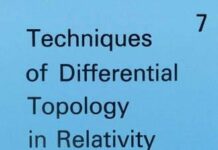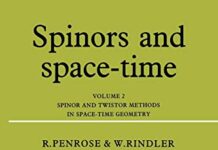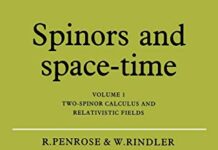
Ebook Info
- Published: 1996
- Number of pages: 480 pages
- Format: PDF
- File Size: 5.34 MB
- Authors: Roger Penrose
Description
A New York Times bestseller when it appeared in 1989, Roger Penrose’s The Emperor’s New Mind was universally hailed as a marvelous survey of modern physics as well as a brilliant reflection on the human mind, offering a new perspective on the scientific landscape and a visionary glimpse of the possible future of science. Now, in Shadows of the Mind, Penrose offers another exhilarating look at modern science as he mounts an even more powerful attack on artificial intelligence. But perhaps more important, in this volume he points the way to a new science, one that may eventually explain the physical basis of the human mind. Penrose contends that some aspects of the human mind lie beyond computation. This is not a religious argument (that the mind is something other than physical) nor is it based on the brain’s vast complexity (the weather is immensely complex, says Penrose, but it is still a computable thing, at least in theory). Instead, he provides powerful arguments to support his conclusion that there is something in the conscious activity of the brain that transcends computation–and will find no explanation in terms of present-day science. To illuminate what he believes this “something” might be, and to suggest where a new physics must proceed so that we may understand it, Penrose cuts a wide swathe through modern science, providing penetrating looks at everything from Turing machines (computers programmed from artificial intelligence) to the implications of Godel’s theorem maintaining that conscious thinking must indeed involve ingredients that cannot adequately be stimulated by merecomputation. Of particular interest is Penrose’s extensive examination of quantum mechanics, which introduces some new ideas that differ markedly from those advanced in The Emperor’s New Mind, especially concerning the mysterious interface where classical and quantum physics meet. But perhaps the most interesting wrinkle in Shadows of the Mind is Penrose’s excursion into microbiology, where he examines cytoskeletons and microtubules, minute substructures lying deep within the brain’s neurons. (He argues that microtubules–not neurons–may indeed be the basic units of the brain, which, if nothing else, would dramatically increase the brain’s computational power.) Furthermore, he contends that in consciousness some kind of global quantum state must take place across large areas of the brain, and that it within microtubules that these collective quantum effects are most likely to reside. For physics to accommodate something that is as foreign to our current physical picture as is the phenomenon of consciousness, we must expect a profound change–one that alters the very underpinnings of our philosophical viewpoint as to the nature of reality. Shadows of the Mind provides an illuminating look at where these profound changes may take place and what our future understanding of the world may be.
User’s Reviews
Editorial Reviews: Review “[Roger Penrose is] one of the greatest mathematical physicists alive….A work of breathtaking scope and richness….One certainly comes away from the book exhilarated by new metaphysical vistas.”–The Wall Street Journal”Provocative.”–American Scientist”Penrose reveals several worlds that are normally very hard to see but that thanks to his guidance are thrilling to imagine.”–The New York Times About the Author Roger Penrose is the Rouse Ball Professor of Mathematic at the University of Oxford. He is the author of The Emperor’s New Mind, which was a New York Times bestseller and was awarded the UK’s 1990 COPUS Prize for science writing. In 1988, he received the internationally prestigious Wolf Prize for physics, shared with Stephen Hawking, for their joint contribution to our understanding of the universe.
Reviews from Amazon users which were colected at the time this book was published on the website:
⭐Item was purchased as “very good” condition and in fact showed up with two major cuts all across the front cover, deep enough that it goes into the first three pages. Also, a yellow stain on the top with multiple pages that have contain makeup fingerprints and bending. Would not purchase from again.
⭐Another stunning book by Sir Roger Penrose. It’s really a five star book discounted here by one star because those lacking physics and mathematics will find some passages hard work, even though the author is being as kind as possible in a book of this calibre.The book is a neat sequel to his “The Emperor’s New Mind”, extending the central theme that our little-understood human consciousness allows us to think way beyond the computational and mindless world of artificial intelligence.In doing so, we have a marvellous survey of classical and modern physics, including the mysteries of the quantum world.Sir Roger raises the question ‘Will we ever be able to truly understand our own Nature-provided brain and its processes in terms of our own science?’, and argues that, somewhere out there beyond our present reach, there is a unifying Platonic view of the Universe.This book is a tour de force on several planes. Highly recommended.
⭐I rate this book highly for its many interesting insights—great food for thought. I think Penrose’ assessments of models of consciousness by other physicists are on the mark, including his critique of decoherence theories. He is probably on the right track in treating the collapse of the wave function as a real phenomenon, in which case he is correct is saying “what is going on will have no chance of being properly understood until we have a much more profound appreciation of the very nature of matter, time, space, and the laws that govern them.” (p. 395)I was not persuaded by Penrose’ own theory at all. The only connection between quantum mechanics and consciousness is that they are both mysterious. Moreover, it is the qualia of consciousness that is mysterious, not the fact that we are non-algorithmic.
⭐This is a dense book and Penrose is nothing but fair on the surface. It is only in reading to the end that one realizes the Platonic ambush lurking there. Looking back it seems that Penrose’s fairness was misguided and really was a bit of sly editing and disingenuous dodging of issues that were designed to skew the facts. The OR (read Platonic realism or forms) was only a trick that was supposed to replace the collapse of the wave function but was really a Platonic ambush to garner support for Platonic Dualism. The book looses all credibility in the last ten pages in spite of the fact that all the preceding pages seemed ultra-credible. Perhaps if Penrose was as smart as Godel he would have hidden his Platonism for another book instead of ruining his fine efforts here.Consciousness, the putative concern of the book, is never defined and in lieu of even the suggestion of an answer all the reader gets is a Platonic sales pitch.Although I do own the “Road to Reality” I will not read it without first reading the ending to be sure I am not wasting my time on yet another ambush.
⭐This is an amazing book. The review of Quantum Field Theory is amazing. If you want something easier, try Brian Greene’s, The Elegant Universe. But the Shadows of the Mind goes into more math and some great examples.
⭐I bought this book a week ago. It’s a hard copy. It is very clean, new, and good smell!
⭐AS USUAL SIR PENROSE IS IN RARE FORM. THANK GOD, FOR I’M A NOTICE AT THIS SUBJECT. MY LOVE FOR SCIENCE IS LARGE. UNFORTUNATELY, LIKE SO MANY OTHERS A POOR MATHEMATICAL BACKGROUND MAKES FOR A LESS THAN ADEQUATE GRASP OF THE MORE DIFFICULT EQUATIONS THAT ARE FOUND IN PHYSICS. ROGER PENROSE DOES AN EXCEPTIONAL JOB AT HELPING PEOPLE LIKE ME ALONG ON THIS MAGNIFICENT JOURNEY.THANK YOU SIR FOR YOUR SINCERE ATTEMPTS TO MAKE ME FEEL GOOD AS I SEEK A BETTER UNDERSTANDING OF MATH AND SCIENCE,
⭐Excellent alternative view to mainstream philosophy. Vast improvement over the emperor’s new mind, especially in terms of having taken criticism on board. It can be read independently, even though it can also be read as a sequel of sorts. If mind and consciousness are interesting to you, and you like hearing about theories in physics, this is a great book.
⭐Firstly, serious students of this subject should NOT buy the Vintage Classic paperback edition. It is incredibly hard to read. The font is tiny, and four crucial symbols used throughout the book are printed in an absurdly small stylised script font making them almost indistinguishable from each other. These are central to understanding Penrose’s arguments. Their illegibility ruined my reading experience, making a difficult subject almost impossible to follow.Penrose is known as a critic of artificial intelligence research, and in this controversial book he attempts to analyse the true nature of intelligence and consciousness by refuting the assertion that true intelligence can be attained or simulated by computational means.His arguments are premised on a controversial paper by John Lucas, the Oxford philosopher, in which he attempted to prove that Godel’s famous theorem of mathematical logic called “The Second Incompleteness Theorem” suggests that human intelligence can’t be simulated by any computer configured as a Turin machine. Penrose agrees, differing from many scientists and mathematicians in being convinced that the functionality of the human brain has nothing to do with currently known physics or chemistry.Penrose believes that non-computational processes do somehow operate within the brain, and that we need a new law of physics to account for them. He discusses in considerable and somewhat tortuous detail difficult concepts from quantum mechanics and computational science to convince the reader of his argument. These explanations though not especially complex mathematically require a deep understanding and following of the arguments, and which I, as a non-mathematician, found hard to absorb.The arguments are so convoluted and repetitive that I found myself constantly losing the point of the book. I even wondered whether the book should have written in reverse, with the final chapters first, so that at least we would have a firm basis on which to try and follow the reasoning. Some of Penrose’s arguments were rewarding to read, but sadly I had to skip many of them. Such a shame because much of the discussion about whether computer programmes could simulate intelligence should be fascinating, but it was just hard work.For me, the saving grace of this book is the second part, which is an excellent introduction to the foundation of quantum mechanics with respect to the phenomenon of consciousness. Here Penrose speculates on the role of microtubules, cellular structures within the brain’s neurons, in creating a quantum phenomenon on a macroscopic scale within the brain. And finally, he steps back and takes a philosophical view of consciousness, offering no answers but leaving much food for thought. There was much to be learnt here, and it is worth buying the book just for this section.
⭐I am sympathetic to the thesis put forward in “The Emperor’s New Mind” but I found much of the book incomprehensible. Similarly with this development of its predecessor. Dr Penrose seems unable or unwilling to descend to the level of the general reader, in contrast, say, to Paul Davies in “God and the New Physics”. The book does contain a new approach to Godel’s Incompleteness Theorems but this seems to me to make it all the clearer that they depend on an illusory paradox arising from self-referentiality. To be fair, there are pages of densely-packed answers to any possible objections along these lines, but they are quite beyond me.
⭐I’m sure this book by Prof Roger Penrose would be an illuminating experience – were it not for its ridiculously tiny script, which here achieves mitochondrial levels of unreadability. The publishers should have supplied a magnifying glass to accompany each copy of the book. As it is my own paperback edition will remain forever unread and unloved.
⭐It was an absolute disappointment after other books of Penrose. It is written about many things, not very didactically. It’s not easy to follow the thoughts of Penrose, but the worst thing in this book is that it does not mention the real problems of mind. Even the title of the book should be something else because we have not got anything about the shadows of the mind. I should say that I was not able to read fully the book. Maybe its because English is not my native language, but maybe because this book is not well written. I am very sorry to give only 2 stars to this book but I was not very satisfied with it.
⭐Wow. Roger Penrose at his best – is he ever at anything else? He really never leaves a stone unturned. Anyone who has read “The Emperor’s New Mind” (he calls it ENM in this later book) will be thrilled with this. He refuses to “run with the crowd”. It really stimulates one’s thinking.
Keywords
Free Download Shadows of the Mind: A Search for the Missing Science of Consciousness in PDF format
Shadows of the Mind: A Search for the Missing Science of Consciousness PDF Free Download
Download Shadows of the Mind: A Search for the Missing Science of Consciousness 1996 PDF Free
Shadows of the Mind: A Search for the Missing Science of Consciousness 1996 PDF Free Download
Download Shadows of the Mind: A Search for the Missing Science of Consciousness PDF
Free Download Ebook Shadows of the Mind: A Search for the Missing Science of Consciousness




